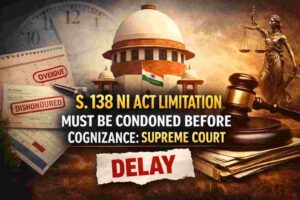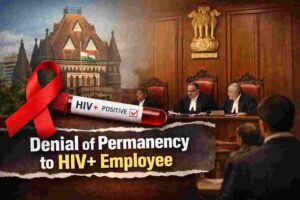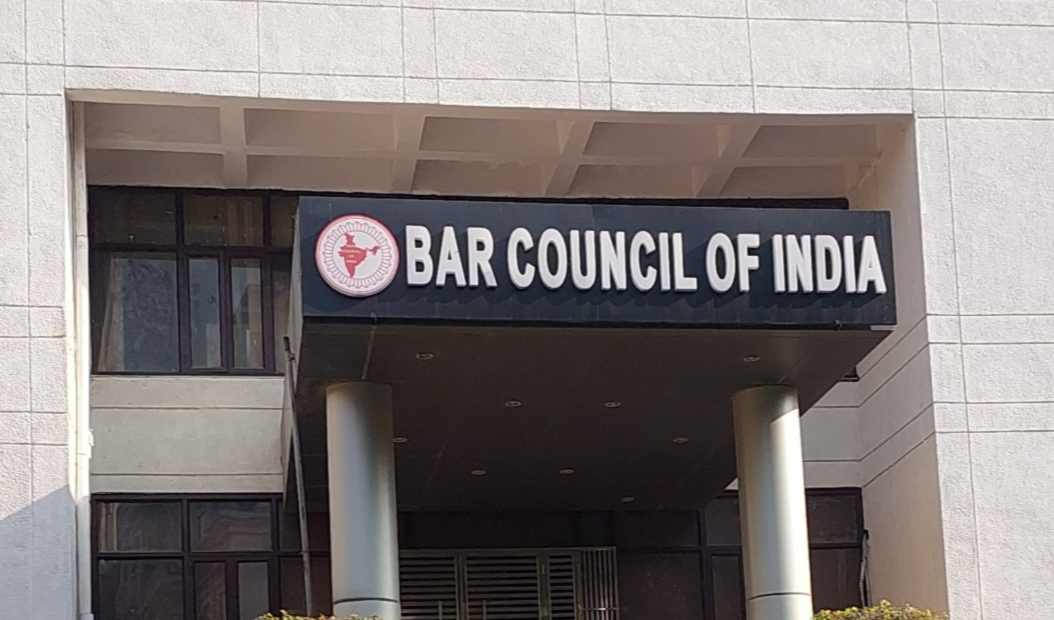The Bar Council of India (BCI) seeks to raise lawyer enrolment fees from ₹750 to ₹25,000, citing financial constraints. The Supreme Court questioned the BCI’s plea, emphasizing legislative action. The government must amend the Advocates Act, 1961, to implement the proposed fee hike.
The Bar Council of India (BCI) has filed an application in the Supreme Court seeking to increase the enrolment fees for lawyers.
The BCI’s application, filed in the case of Gaurav Kumar v. Union of India, calls for amendments to the Advocates Act, 1961, to raise the current enrolment fee cap from ₹750 to ₹25,000 for general category applicants.
This plea is seen as an attempt to address the financial constraints faced by the Bar Councils, which have been struggling to manage their operations under the existing fee structure, last revised three decades ago.
The BCI argued that the inflation-adjusted fee would be around ₹50,000 if calculated as per current economic indicators.
Current Legal Framework
The Advocates Act, 1961, governs the enrolment process for advocates in India. Section 24 of the Act specifies that enrolment fees must not exceed a statutory limit, which was revised in 1993 to ₹750.
However, in July 2024, the Supreme Court, in the same case, ruled that neither the State Bar Councils nor the BCI could charge fees beyond this statutory limit.
As a result, the BCI is now seeking judicial directions for the government to amend the Act and revise the enrolment fees to a more sustainable level.
Proposed Fee Structure
According to the BCI’s proposal:
- General category applicants would pay ₹25,000 as enrolment fees.
- Scheduled Caste (SC) and Scheduled Tribe (ST) candidates would pay ₹10,000 to the respective State Bar Council and ₹2,500 to the BCI.
- Additionally, the BCI seeks the liberty to revise the fee periodically, in line with the Reserve Bank of India’s (RBI) inflation calculator.
Senior Advocate and BCI Chairperson Manan Kumar Mishra, representing the Council, submitted that the current fee structure is outdated and unsustainable, given the financial demands of managing the regulatory framework for the legal profession.
Inflation and Financial Constraints
In its application, the BCI highlighted the impact of inflation over the years. It cited data showing an average annual inflation rate of 7.5% from 1960 to 2021, with a cumulative price increase of over 7,700%.
An excerpt from the application reads: “An item that cost ₹100 in 1960 would cost ₹7,804.85 by the beginning of 2022. If the same concept is applied, the enrolment fee, which was set decades ago, should be around ₹50,000 in today’s terms.”
The BCI also emphasized that the limited enrolment fees are insufficient to meet the operational and administrative costs of the Bar Councils, potentially leading to a financial crisis. The Council warned that without adequate funding, it may face severe constraints in fulfilling its regulatory responsibilities.
Supreme Court’s Observations
The matter was heard by a bench comprising Justices P.S. Narasimha and Manoj Misra.
During the proceedings, the bench expressed its reservations about the BCI’s approach, questioning why the Council was seeking judicial intervention in a matter that falls within the legislative domain.
Justice Narasimha remarked: “This is a legislative Act. Why should we interfere? Ask the Government to change it.”
He further criticized the BCI for undermining its own authority as the apex regulatory body for the legal profession, stating: “It is very sad that the Bar Council is asking us to tell the Government to amend the rule. You are the regulator of professional services for lawyers. Why are you not approaching the Government directly?”
Representation to the Government
Manan Kumar Mishra clarified that the BCI had already made a representation to the Ministry of Law and Justice, urging it to consider amending the Advocates Act. However, the Council felt compelled to approach the Court to expedite the process.
Justice Narasimha, however, was unimpressed by this reasoning, commenting: “If somebody wants the rule to be amended, they make a representation. Why are you coming to the Court for such directions?”
The Court refrained from issuing any notice or directives, emphasizing that the matter requires legislative action rather than judicial intervention.
Implications for Aspiring Advocates
If the proposed fee structure is implemented, it would significantly increase the financial burden on law graduates seeking enrolment.
While the BCI justified the hike as necessary to maintain the financial health of the Councils, critics argue that it could create barriers for economically disadvantaged candidates.
At the same time, the proposal includes concessions for SC/ST applicants, aligning with the principle of promoting inclusivity in the legal profession.
Legislative Action Required
The Supreme Court’s observations underscore the need for legislative amendments to address the issue. Without such amendments, any attempt to increase enrolment fees would be deemed ultra vires the Advocates Act.
The BCI’s application has reignited the debate on the role of regulatory bodies, the judiciary, and the legislature in addressing financial and operational challenges within the legal profession.
Case Background
The case of Gaurav Kumar v. Union of India has been pivotal in shaping discussions around enrolment fees. In its July 2024 judgment, the Supreme Court had categorically stated that Bar Councils cannot charge fees beyond the statutory limits prescribed under the Advocates Act.
This ruling has left the BCI and State Bar Councils grappling with financial constraints, prompting the current plea for legislative intervention.
Future Outlook
The BCI’s application raises broader questions about the financial sustainability of regulatory bodies in the legal profession. While the Court has refrained from intervening, the onus now lies on the government to take proactive steps to address the issue.
The Ministry of Law and Justice is expected to review the BCI’s representation, but any amendment to the Advocates Act will require careful consideration of its impact on aspiring advocates and the legal profession as a whole.
Case Details:
- Case Title: The Bar Council of India v. Gaurav Kumar & Ors.
- Case Number: MA 2253/2024 in W.P.(C) No. 352/2023
- Bench: Justices P.S. Narasimha and Manoj Misra
Follow The Legal QnA For More Updates…
FAQs on BCI’s Plea to Increase Lawyer Enrolment Fees
1. Why is the Bar Council of India (BCI) seeking to increase enrolment fees?
The BCI argues that the current fee of ₹750, set in 1993, is outdated and insufficient to meet financial and operational needs. It proposes a hike to ₹25,000 for general applicants, citing inflation and financial constraints.
2. What are the proposed new enrolment fees?
- General category: ₹25,000
- SC/ST candidates: ₹10,000 (State Bar Council) + ₹2,500 (BCI)
3. Has the Supreme Court approved the fee increase?
No, the Supreme Court refused to intervene, stating that the matter requires legislative action, not judicial intervention.
4. Can the BCI increase enrolment fees on its own?
No, under the Advocates Act, 1961, enrolment fees cannot exceed ₹750 unless amended by the government.
5. What did the Supreme Court say about the BCI’s plea?
The Court questioned why the BCI approached the judiciary instead of directly urging the government to amend the law.
6. How does inflation impact the proposed fee increase?
The BCI argues that if adjusted for inflation, the enrolment fee should be around ₹50,000 today, making the proposed ₹25,000 reasonable.
7. Will the proposed fee hike affect aspiring lawyers?
Yes, it could increase financial burdens on law graduates, although concessions for SC/ST candidates aim to promote inclusivity.
8. What is the next step in this case?
The Ministry of Law and Justice will review the BCI’s representation, but any fee revision requires an amendment to the Advocates Act.
9. Where can I get further updates?
Follow The Legal QnA for the latest legal news and developments.















